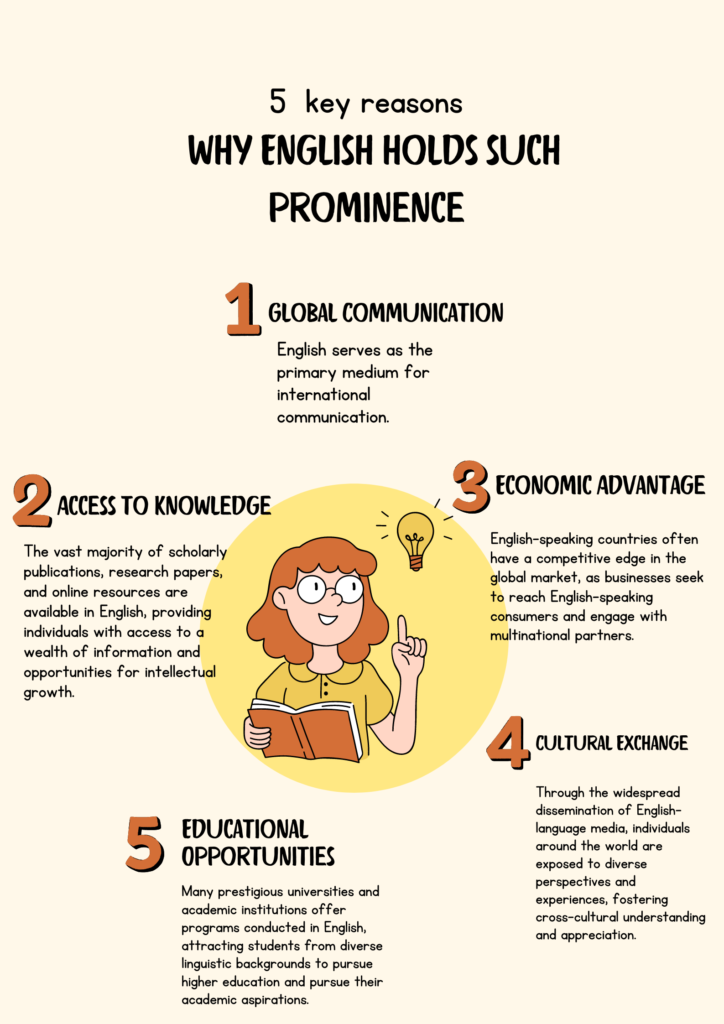In the tapestry of world languages, few threads are as intricately woven, as universally recognized, and as profoundly influential as English. A language that spans continents and cultures, English has emerged as the lingua franca of the modern era, serving as a bridge for communication, commerce, and cultural exchange on a global scale.
At its core, English is a West Germanic language that originated in medieval England. Its evolution over centuries has been shaped by conquests, migrations, and cultural interactions, resulting in a rich and diverse linguistic heritage. From its humble beginnings as a vernacular tongue spoken by a small island nation, English has grown into a global powerhouse, spoken by over 1.5 billion people worldwide, with varying degrees of proficiency.
The importance of English cannot be overstated, particularly in today’s interconnected world. Here are several key reasons why English holds such prominence:
- Global Communication: English serves as the primary medium for international communication. Whether in diplomacy, business negotiations, academic discourse, or casual conversations among travelers, proficiency in English facilitates meaningful interactions across linguistic boundaries.
- Access to Knowledge: English is the dominant language in academia, science, technology, and the internet. The vast majority of scholarly publications, research papers, and online resources are available in English, providing individuals with access to a wealth of information and opportunities for intellectual growth.
- Economic Advantage: In the realm of global commerce, proficiency in English is a valuable asset. English-speaking countries often have a competitive edge in the global market, as businesses seek to reach English-speaking consumers and engage with multinational partners.
- Cultural Exchange: English serves as a conduit for the exchange of ideas, literature, music, film, and other forms of cultural expression. Through the widespread dissemination of English-language media, individuals around the world are exposed to diverse perspectives and experiences, fostering cross-cultural understanding and appreciation.
- Educational Opportunities: Proficiency in English opens doors to educational opportunities abroad. Many prestigious universities and academic institutions offer programs conducted in English, attracting students from diverse linguistic backgrounds to pursue higher education and pursue their academic aspirations.

In essence, English has become a tool of empowerment, enabling individuals to navigate the complexities of the modern world and participate more fully in global society. However, it is essential to recognize that the widespread dominance of English does not diminish the value of other languages and linguistic diversity. Rather, it underscores the importance of multilingualism and cultural exchange in fostering a more inclusive and interconnected world.

